AK: I have been playing games for the last 1 year. I started taking part in basketball, swimming, table tennis and other sports at school. Afterwards, I represented my school in different championships. Our teachers trained us for these competitions.
It is an honor for me that my school sent me and some other children to the World Special Games which were held in China in 2006.
KPDC: What is your next target?
AK: There is a Basketball championship which will be held in Pakistan very soon. I am planning to participate in that and want to win gold medal INSHAALLAH. We are trying to develop our team and want to win every event for our country INSHAALLAH.
KPDC: What do you want to be in future?
AK: I want to be like Miss Haider; she is our sports teacher. I want to be the coach of my Botchy team.
KPDC: What do you do in your free time?
AK: In free time, I enjoy listening music. I have some friends too and I play with them. Sometimes, I also watch cartoons.
KPDC: Who do you like more; mom or dad?
AK: I like my mother more because she always supports me.
KPDC: What message would you like to convey to other children?
AK: I would like to say that other children should come and see how we are playing. They should appreciate us. Every child should play games to keep themselves healthy and fit.
Questions from Ayesha’s teacher, Mr. Shamshad:
KPDC: First of all please tell us something about your academy?
Mr. Shamshad: We are special educators and our academy is situated in Landhi, titled ‘Ummeed Special Academy’.
We have 40 children at the moment. Our main aim is to make the special children a valuable asset to the society. We focus on the potentials of these children and try to polish them accordingly while ignoring their disabilities. We have plans to provide these children with computer education in future as well.
KPDC: Tell us something about Ayesha? How long has she been with you?
Mr. Shamshad: When she came to us, she was moderately retarded. She had a sort of phobia; her speech was not well developed. She also lacked eye-coordination and was an extremely shy girl.
Initially, her parents admitted her at Edhi. One day, one of their relatives came to me and asked me what should be done about a special child like her. I told him to bring her to me so that I will be able to assess her. When I examined her, I advised her parents to take her out of Edhi as soon as possible and admit her in a special education centre where she can get proper care.
Afterwards, her parents brought Ayesha to our centre and she has been with us for the last 5 years now. Ayesha has improved very quickly by the grace of ALMIGHTY ALLAH.
We observed her talent in the sports and so focused on this area and helped her polish her talent. She is a very good player of Botchy and has participated in World Special Games which were held in China. She won 1st prize in Botchy and in double game she got 2nd, while in the team event they got Silver medal. She wants to be a coach of our Botchy team in the future and we are also expecting the same from her.
I would also like to say that Special Olympics Pakistan has also contributed significantly in our achievements and those of Ayesha.
KPDC: How do you treat these special children?
Mr. Shamshad: Any disability can be genetic or by birth. It can also be due to socio-economic problems, accidental cases, or any other problems like anoxia etc.
I think each one of us is a special person. Those who are physically handicapped or mentally retarded are called special persons. If someone is a super genius even he or she is a special person. Naturally, the brains of these children don’t work normal.
When we figure out that a child has problems in a particular area, we focus on other parts of their abilities which are working proper. For example; if someone is lacking in speech, but we see that he is good at arts, so we encourage his talent and ignore his disability. We see the talent in such children and then try to support them to make use of this talent.
I believe that the important things for a special educator are patience and dedication. In absence of these 2 things, it would be very difficult for anyone to instruct special children.
KPDC: Do you think there is enough awareness in our society about the special children?
Mr. Shamshad: The first special education centre started working in Karachi in 1988. Up till now, there are only a few special education centers working in Karachi. Another problem is that people are not willing to admit their children in these centers. We have been visiting door to door, telling parents that if you have handicapped children, get them admitted in the special education centre. Now, we see a little bit of improvement in the sense that now parents have started realizing that special education is for the better future of their special children. But still there is a lot much to be done.
Handicapped children usually don’t have social sense. Parents have to monitor them throughout because they are fully dependant on their parents. By admitting them in special education center, these children can develop some sort of social sense in themselves. They can learn little things and can live independently, which means a great relief for their parents. Special education system is meant to make these children independent and polish their potentials. One prime example of what I just said is Ayesha, who has made some remarkable achievements.
KPDC: How difficult was it to motivate Ayesha’s parents?
Mr. Shamshaad: As far as my personal efforts are concerned, I had to convince Ayesha’s parents that our academy will make Ayesha a better human being. My wife has helped me a lot in this regard. Now that Ayesha has got mature, and her parents have seen the results, now her parents are more comfortable with our program. What happens is that we need to constantly motivate parents of such children after every some time, because they get discouraged very quickly, so this is a continued process. In Ayesha’s case, we held meetings with her parents after every little period to tell them what we have achieved till now and what we are eyeing on in the next phase. There was a time when they were thinking that Ayesha will never live a happy life but now they can expect from Ayesha what can be expected from a girl, so this makes them very happy.
KPDC: What role do you think parents have to play in this regard?
Mr. Shamshad: Parents have no doubt a significant role to play. Especially, a mother plays a very vital role. Ayesha’s father often disagreed to send Ayesha with us, but her mother always encouraged our efforts. In the beginning, we had to convince her mother and now she fully supports Ayesha. I believe that parent’s efforts are very important in a child’s’ development than any other thing. We as teachers can’t do it alone. Children spend a very little time in the school or centre, most of the time they are at their homes. Not only parents but all other members of the family should try and support handicapped children. In fact, we can only provide the guidance; the real efforts have to come from the parents and other family members.
KPDC: What message would you like to give to the parents of special children?
Mr. Shamshad: First of all, please get out of the impression that special children are those who can’t do anything in their lives. These children can do what we can not. They only need a good counselor/tutor and guidelines. Every person has some abilities and some disabilities. All we need to do with such children is to ignore their disabilities and polish their abilities.
KPDC: Thank you so much for being here and enlightening us with your thoughts. C U on Net.
Ayesha Kanwal & Mr. Shamshaad: We also enjoyed being here. C U On Net 2.
Interview Organized By:
Dr. Saira Bano
Interview Panel:
Miss Quratul Ain Rashid
Mr. Imran Durrani
Compiled By
Mr. Imran Durrani
skip to main |
skip to sidebar
Get the latest free guess papers of class 8th, 9th, 10th, FA, FSC, BA, BSC, MA, MSC, MCOM, BCOM, MIT, PGD-It, and Other Classes of Punjab University and Others Colleges and Boards of Pakistan India and Bangladesh
MORE GUESSPAPERS and NOTES
197 MUSIC
221 BIOTECHOLOGY (878)
A level Latin
A-level ACCOUNTING 0452/01 Paper 1 Multiple Choice May/June 2009
A-level FIRST LANGUAGE CHINESE 0509/02
A-level Pakistan Studies 2006
A-level PHYSICS Paper 3 Extended 0625/03
BA Economics
BCOM PART 2 ADVANCED ACOUNTING
BCOM PART 2 BCRW
BCOM PART 2 BUSINESS LAW
BCOM PART-2 AUIDITING
BCOM-II Economics
BCOM-PART 2 BUSINESS TAXTATION
BCOM-PART 2 COST ACCOUNTING
BIOTECHOLOGY (878)
CA Foundation Course GDP n GNP
CA Free Markete Economy
CA important questions
CA Notes Scarcity and Choice
CA Notes UNIT 3.1 NATIONAL INCOME
CA Notes UNIT 3.2 GOVERNMENT AND THE ECONOMY
CA Notes UNIT 3.3 FISCAL POLICY
CA Notes UNIT 3.4 MONEY MONETARY POLICY
CA Notes UNIT 3.5 CAPITAL
CA Notes UNIT 3.6 INTERNATIONAL TRADE
CA Solved Assignments
CBSE Science - Chap 1 - Crop Production And Management - Page 13 - Q 1
CBSE Syllabus Class 9 - English (Communicative )
CBSE Syllabus of English Language And Literature for Class 9th For March 2009 Examination ENGLISH - LANGUAGE AND LITERATURE (Code No. 184)
CBSE Syllabus of Mathematics for Class 9th For March 2009 Examination Course Structure Class IX | Mathematics
CBSE Syllabus of Science And Technology for Class 9th For March 2009 Examination COURSE STRUCTURE CLASS IX | SCIENCE (THEORY)
CBSE Syllabus of Social Science for Class 9th For March 2009 Examination COURSE STRUCTURE Social Science | CLASS IX
Class X BIOLOGY GUESS QUESTIONS FOR SSC
Class X SOCIAL PAPER 1 GUESS QUESTIONS - - - - -
Class X Social Studies Question Paper
COMPUTER SCIECE (868)
COST AND REVENUE
Economics Solved Assignments
ELECTRICITY A D ELECTRO ICS (866)
Empirical and Molecular Formulas
EVIROMETAL SCIECE (877)
FASHIO DESIGIG (865)
GEOMETRICAL AD MECHAICAL DRAWIG (869)
Guess Paper – 2010 Class – X Subject –Chemistry (Equations)
Guess Paper – 2010 Class – X Subject – English Paper - I
IMPORTANT QUESTION CA
INDIAN CERTIFICATE OF SECONDARY EDUCATION EXAMINATION
INDIAN SCHOOL CERTIFICATE EXAMINATION
ISC MODEL EXAMII\ATION 2OTO CLASS XII MATHEMATICS
LATIN 0480/02 Paper 2 Literature May/June 2009
LITERATURE IN ENGLISH 2010/01
Managerial Economics Notes UNIT 3.1 THE SCOPE OF MANAGERIAL ECONOMICS
Managerial Economics Notes UNIT 3.2 RISK ANALYSIS RISK AND UNCERTAINTY IN MANAGERIAL DECISION MAKING
MARCH 2010
MARK SCHEME for the May/June 2008 question paper 2059 PAKISTAN STUDIES
MCOM Notes UNIT 1 DEFINITION AND BASIC CONCEPTS
MCOM Notes UNIT 1.5 PRODUCER BEHAVIOUR
MCOM Notes UNIT 1.6 THEORY OF THE FIRM
MCOM Notes UNIT 2.1 NATIONAL INCOME
MCOM Notes UNIT 2.2 INFLATION AND BUSINESS CYCLE
MCOM Notes UNIT 2.3 BALANCE OF PAYMENT AND EXCHANGE RATES
MCOM Notes UNIT 2.4 MONEY AND BANKING
Model Question Paper B.A. (Hons.) English Entrance Test
MS 01 Management Functions and Behaviour
MS 02 Management of Human Resources
MS 06 Marketing For Managers
MS-05 Management of Machines and Materials
O-level ACCOUNTING 0452/01 Paper 1 Multiple Choice May/June 2009
Pak Studies Ch 8 Chapter Name: Industry of Pakistan.
Paper BA Economics B
PHYSICAL EDUCATIO (875)

